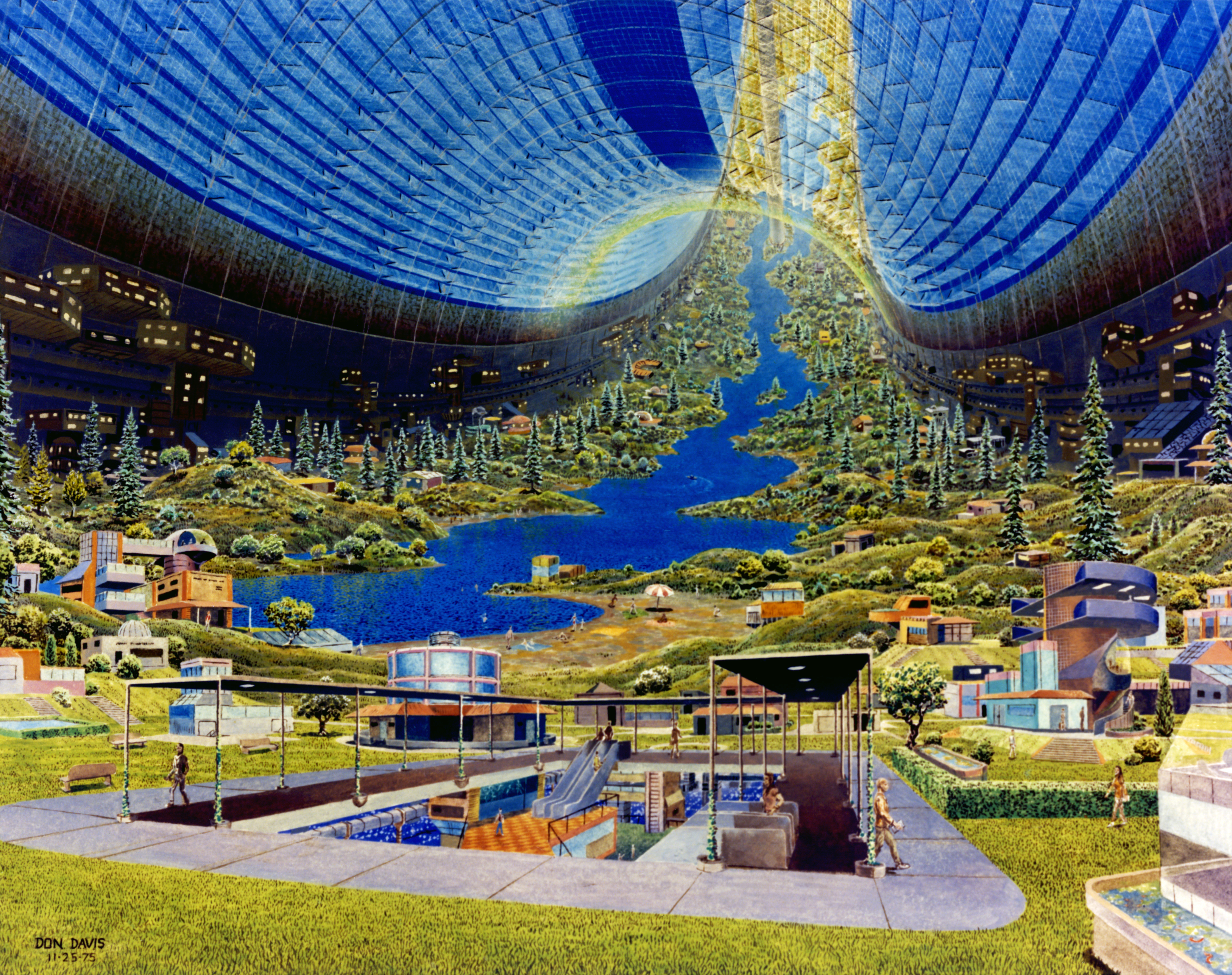Gerald O’Neill’s space dreams were bold–and very unrealistic. The astrophysicist believed 40 years ago, right around the time of his popular paper, “The Colonization of Space,” that Earthlings would be able to make round-trip voyages to other planets for about $3000 before the end of the century. Not quite.
O’Neill died, however, inspire the famous 1970s space-colonies design, which I’ve used on this site many times. From Brian Merchant at Vice:
The first serious blueprint for building cities in space was drawn almost on a whim. Forty years ago this summer, dozens of scientists gathered in the heart of Silicon Valley for one of NASA’s design studies, which were typically polite, educational affairs. But in 1975, the topic of inquiry was “The Colonization of Space,” a recent paper by the astrophysicist Gerard O’Neill.
“The idea was to review his ideas and to see if they were technically feasible,” said Mark Hopkins, an economist who was there. “Well, they were.” So the scientists had a choice—set about laying the groundwork for real, no-bullshit space colonization, or hold the regularly scheduled series of seminars. “We said, ‘To hell with that,'” Hopkins recalled. The ten-week program became a quest to outline a scientifically possible and economically viable way to build a human habitat in space.
What they came up with—designs for huge, orbital settlements—are still pretty much the basis for all our space digs today, science-fictional or otherwise.•




